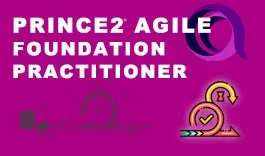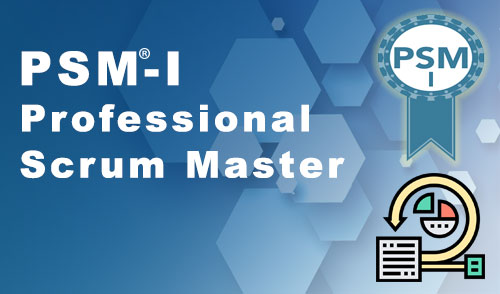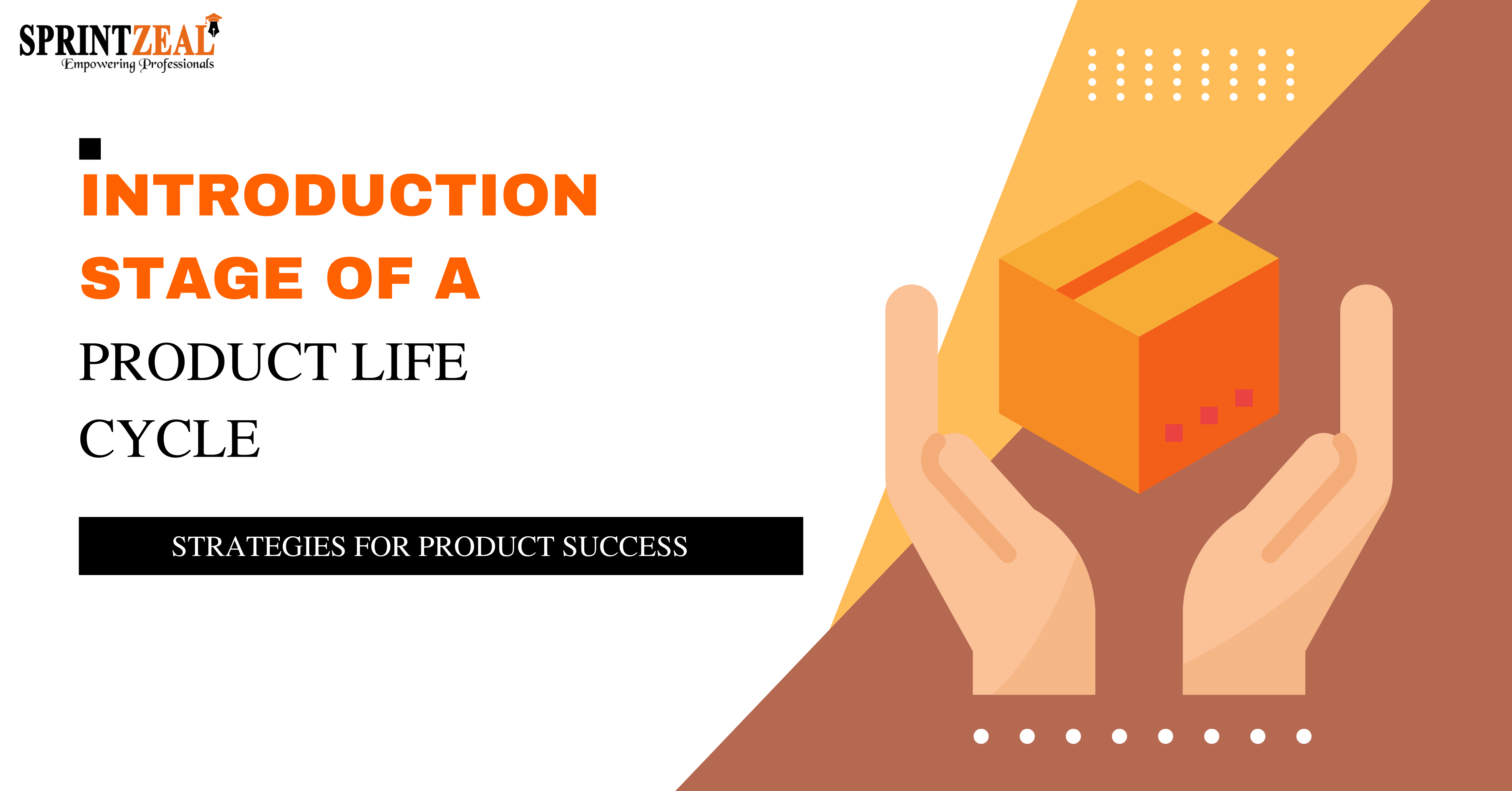DevOps Career Guide 2024
-
 By Akssar
By Akssar - Published on Jul 20 2022

DevOps Career Path – A Comprehensive Guide for 2024
In the realm of information technology, the term "DevOps" is something that is often used. Because of the extraordinary interest in this sector, there has been a growth in the need for career paths for DevOps engineers.
There is no evidence of a slowing in the need for the career path of DevOps Engineer, who has one of the most demanding job descriptions.
Over the last two to three years, the need for DevOps specialists in the job market has surged by around 35 to 45 percent, and this figure is constantly expanding.
DevOps is now tough work that involves a broad variety of talents in addition to sufficient experience and in-depth knowledge in this field.
To be successful, you will need to have these three things.
It should come as no surprise that DevOps will soon come to dominate the field of information technology.
And if the prospect of a successful career as a DevOps engineer excites you, then you are well on your way to achieving that goal!
What is meant by the term "DevOps"?
The term "DevOps" was first conceived by Patrick Dubois, an independent IT consultant. After that point, the field has not ceased to become more widespread or more advanced.
Engineers that work in DevOps as a career combine the work of developers and operations personnel to speed up delivery.
Because of the constraints imposed by agile, there is a growing need for DevOps Engineers, which is gradually becoming a bottleneck in agile delivery.
While development teams are working hard to make new changes at a quick pace throughout each sprint, operations teams are finding it difficult to keep the application stable and secure at such a rapid pace.
As a result of bringing together software developers and IT operations engineers, the divide between the two types of processes has been closed.
The needs of each other are understood by the teams, and they plan and prepare appropriately.
Engineers that work on DevOps employ a variety of technologies and procedures to improve the teams' ability to collaborate and communicate with one another.
Continuous monitoring increases the flexibility of the infrastructure, which in turn makes it simpler for teams to manage their applications and ensure their safety.
A career in DevOps for freshers is an excellent choice for many new candidates.
Which Phases Does the DevOps Model Include in Its Expansion?
Continual Development
The first step of the DevOps lifecycle is known as continuous development. This phase encompasses all of the planning and coding that goes into a software product.
DevOps Engineers will now take some time to sit down and imagine the final product, which is to say, what the software application will look like.
Once the concept has been established, the developers will begin developing the code and maintaining it. The code is maintained with the assistance of several different tools.
The management of source code is the name of this procedure. SVN, Git, Jira, and CVS are some examples of these kinds of tools.
Continuous Integration
The phase of Continuous Development is then followed by the phase of Continuous Integration, and the transition from the first phase into the second phase occurs organically.
This phase is comprised of several processes, such as the preparation of test execution to be carried out during the testing phase as well as comprehending the project requirements supplied by the customer to add the necessary features to the software product.
One of the most important processes that take place during this phase is the preparation for test execution.
Additionally, this stage incorporates regular upgrades to the source code, which often occur once per day or once per week.
The Continuous Integration stage of the larger DevOps lifecycle is commonly referred to as the "heart" of the process.
This is because the Continuous Integration stage is the phase where defects in the code may be identified early on.
Continuous Testing
In the process known as Continual Testing, the newly developed code is subjected to testing on an ongoing basis, during which time faults, errors, and potential vulnerabilities are investigated.
This is also the phase in which the usability of the application is checked using a set of best practices for QA, and it is evaluated here as to whether or not the product meets the requirements specified by the customer.
Automated testing technologies, such as Selenium, which are open-source tools, and more complicated test management systems, such as QARA Enterprise and TestNG, are examples of automated testing technologies that may be used to carry out continuous testing.
These technologies make it possible for the DevOps engineer career path on the QA team to run several tests at the same time, hence increasing the amount of test coverage and the effectiveness of the testing.
Continuous Deployment
Continuous Deployment is the fourth phase in the DevOps lifecycle. This step comprises providing code in such a manner that it does not hinder the performance of the product or website.
At this stage, it is very important to check and make sure that the code has been successfully distributed across all of the servers.
It is of the utmost importance to make certain that the product is implemented with the utmost accuracy and that no room for mistake is left.
Continuous Monitoring
Monitoring is the fifth phase in the DevOps lifecycle, and it comprises recording and evaluating crucial information about the application to pinpoint areas of the application in which further work is required, in addition to general trends.
This is an operational phase, and the purpose is to increase the operational efficiency of the software program while also constantly checking its performance.
During this phase, the software will be operational.
Getting Started with the DevOps
The world of new technology is always moving forward and adapting to new circumstances.
Over the last 10 years, there has been a dramatic shift in the development approaches that are used to support platforms and applications, in part due to the breakneck pace at which these two categories of technology have been changing.
Agile, Scrum, DevOps, and CI/CD are just a few of the concepts that have completely taken over the digital economy.
The need for DevOps professionals in a variety of jobs is seeing a consistent increase in its level of activity.
If you are interested in creating a successful career in DevOps, the time to receive training in these increasingly vital abilities is right now.
Before you embark on a career in DevOps, here is a rundown of the most important considerations you need to give some thought to:
Rising Demand for DevOps Talent
Many of you who work in the technical field or the information technology industry are aware of how DevOps is revolutionizing software development and deployment in companies by eliminating the conflicts that have existed between development and operations teams for such a long time.
This was one of the primary challenges that businesses have faced for such a long time.
Companies that adopt DevOps principles are, quite simply, able to do more in a shorter amount of time.
The effective implementation of a DevOps methodology enables firms to supply software solutions more expediently.
As a consequence, this contributes to the prevention and resolution of production challenges, which, in turn, leads to improved customer experience, feedback, and communication.
In a summary, businesses that integrate DevOps technologies into their workflows can get the following technological benefits:
- The issues are split down into more manageable chunks that can be handled more quickly.
- Distribution of software that is both integrated and ongoing
- Enhanced rate of feature release for software
- Increased consistency in the contexts in which operations are performed
- More time to offer value
It is thus not surprising that organizations all over the world are rapidly transitioning to technologies and techniques connected to DevOps to provide continuous integration and delivery of software-based goods and services.
The need for DevOps specialists is increasing rapidly as more and more businesses are looking to DevOps-related technologies to maintain a competitive advantage over their rivals.
The number of job advertisements for DevOps positions has increased by 75 percent on leading job search portals like indeed.com, and the number of mentions of DevOps as a talent has increased by 50 percent on social networking sites like LinkedIn.
Engineers working in DevOps are increasingly making it possible for businesses to increase their productivity via the use of automation.
Companies that have adopted the DevOps mindset are achieving high levels of performance and enjoying explosive expansion (30 times faster deployment than competitors).
They are also prepared to pay significant prices to get highly qualified DevOps professionals. The most recent version of Dice's "2019 Tech Salary Report" indicates that the average salary for a DevOps engineer career is $111,683, placing this position in the top five of all tech incomes.
The term "DevOps," which was first just a fad, has now evolved into a serious methodology for the creation and management of software-based and software-enabled organizations.
In the ever-evolving world of developing technologies, DevOps is not going away any time soon at all.
DevOps Offers a Definite Career Path that Promises Steady Growth
To be successful in the role of a DevOps engineer, you need to have a comprehensive understanding of the software development life cycle (SDLC).
In addition to this, you need to be an expert in the implementation of different DevOps automation technologies and procedures to address complicated operational issues.
To be a great DevOps engineer, you need to understand how to multitask between diverse activities such as developing, integrating, and testing.
If you want to make a career out of DevOps, you may begin your DevOps career as a Release Manager, then work your way up to become a DevOps Test Engineer, a DevOps Cloud Engineer, and lastly a DevOps Architect.
This is the typical progression of a DevOps career.
For example, the average salary for a Release Manager is $81,000, the average salary for a DevOps Test Engineer is $115,000, and the average salary for a DevOps career Cloud Engineer or DevOps Architect is more than $130,000.
According to the pay figures provided by PayScale and Glassdoor, a DevOps engineer in India may make an average of 6.5 lakhs of rupees each year.
Skilled DevOps engineers are among the most highly compensated IT experts in the market today, and IT giants like Accenture, Barclays, and Facebook are continuously on the search for qualified DevOps workers.
However, people with a larger number of DevOps career talents and who have advanced DevOps certifications often get a better salary than those without either of these qualifications.
However, there is a shortage of trained personnel since, even though a career in DevOps career may be very rewarding, it is also quite difficult.
At its most fundamental level, it requires complete ownership of one's tasks and obligations, in addition to the skill to innovate as a source of technological solutions.
Anyone interested in building a career in that expanding world has to have solid training in DevOps that is recognized by the industry to meet the requirements of this task.
Full-stack online DevOps career courses are offered by some of the world's leading providers of online training in DevOps.
These courses can effectively help you to realize your big IT dreams and jump-start your career in DevOps career.
The DevOps certification training course can get you started in a new DevOps role, while the DevOps career Engineer master's program, which consists of a series of courses, can take you up to the role of a DevOps architect or DevOps cloud engineer.
Both of these roles require advanced knowledge of DevOps.
Your Key Responsibility Areas (KRA) as DevOps Expert
Because of the speedy pace at which DevOps methodology is evolving, new roles and responsibilities, as well as designations in the field, are appearing almost immediately.
Companies often identify these categories individually, even though the skills and responsibilities of DevOps specialists usually overlap with one another.
You need to have the following DevOps abilities, which are representative of the DevOps mentality, to be an extremely productive DevOps engineer:
- The ability to design software while demonstrating knowledge of and experience with a diverse set of tools and technologies
- Able to tolerate increased testing and deployment frequencies
- Having previous experience operating inside a manufacturing setting
- Knowledge of computer and network systems
- Expertise in the administration of data
- A resolute intent to accomplish one's business objectives
- Capability of locating and dismantling organizational silos via the promotion of teamwork and communication
- The need for effectiveness, together with the skill to make effective use of various forms of automation, is essential.
- A comprehension of the reengineering of processes
- A familiarity with the working conditions of the manufacturing setting
- Project management skills
Next, let's have a look at the abilities that are needed to launch a career in DevOps.
Technical Skills Needed to Build a DevOps Career
You need to have a technical background and a bachelor's degree in computer science or information technology to enroll in the online DevOps training course.
To become a DevOps engineer, you will also need to possess the technical abilities listed below. Complete familiarity with the principles of Linux, Web Development, and Java, respectively.
Because the majority of DevOps projects run on Linux, it is very necessary to be familiar with the Linux operating system and the associated scripting languages, such as Python, Ruby, or Pearl. (If you have a technical background but are lacking particular skills like Linux, Web development, and Java, you may take our courses to prepare for a job in DevOps and gain those abilities).
Where Is the Best Place to Begin Your Journey in DevOps?
The fundamentals of DevOps are a good place to begin your education in this field.
This class is intended to provide participants with a knowledge of continuous development and deployment, automation of configuration management, inter-team communication, and IT service agility based on their actual experiences in the real world.
Because the programs offered are done online, the best part is that you can start from the comfort of your own home or workplace.
How Far Do You Want to Go in DevOps?
If you choose a DevOps training course that provides a comprehensive learning path, you will be able to take your DevOps career path to whatever level of success your aspirations demand.
You have the option of enrolling in the DevOps Engineer Master's Program, which includes numerous more in-depth Capstone projects and six more courses in addition to the DevOps Certification Training Course.
You should also make certain that you have a qualification that will allow you to advance to higher levels in your chosen field.
The significance that the market places on various DevOps certifications vary.
Employers will see that you have attained an expert level of skills and knowledge for continuous integration and development if you have a DevOps certification that has been validated by significant IT giants or relevant organizations.
Organizations can provide industry-recognized DevOps course completion certificates to their students.
These credentials are valid for a lifetime and are acknowledged by major technology companies such as Amazon Web Services and Microsoft Azure.
Is a career in DevOps a wise choice?
As a result of its meteoric rise in popularity, DevOps has now established itself as the most widespread and widespread ethics of working for corporate enterprises.
In addition to this, many of the most well-known businesses are eager to make the transition to DevOps techniques, which has resulted in an increase in the proportion of firms using DevOps from 66 percent to 74 percent in the span of only one year, from 2016 to 2017.
The fact that the DevOps technique originated from the Agile Methodology is the finest thing about it.
The Agile Methodology further supports and allows business organizations to have continuous and continuing delivery, continuous integration, and, most crucially, continuous deployment.
This whole process of DevOps practice and strategy helps the company swiftly find and spot bugs, and then carefully repair holes and flaws wherever they are necessary.
A job as a DevOps engineer can be the right choice for you if you have a passion for learning new things and are more interested in the process than the result.
Working in this field may be highly satisfying since it allows you to incorporate cutting-edge technology that can help your firm run its operations more effectively.
Working in this field also gives you the chance to meet new people.
If you are interested in learning more about the work that DevOps engineers perform and the steps required to become one, the next step you should take is to investigate how you may acquire the skills you will need to advance in your career.
The discipline of DevOps is a complicated one that encompasses a wide variety of domains. DevOps engineers can benefit from constantly noticing and paying attention to development as it evolves because changes and improvements to software development tools can help improve the projects they are working on.
Development is one area that engineers can benefit from constantly noticing and paying attention to as it evolves.
Because they frequently collaborate with a wide variety of internal teams, which may include product managers, product owners, and other members of the team, it is essential to have a solid understanding of each of their roles and goals to ensure productive collaboration and continued success.
After you have gained experience in the most important facets of development operations engineering, you should make it a priority to hone your skills in other areas of your job that will help you become more successful.
If you are knowledgeable in these areas, you will have a solid foundation in the process of product creation as well as a deeper grasp of the business process.
Learn the abilities that are in the most demand, the tools, and technology that you need to grasp, as well as the metrics that a certificate can demonstrate to employers.
One DevOps shop's pipeline and its phases might look quite different from those of another DevOps shop due to factors such as the size of the software company and the objectives it seeks to achieve.
The automated software assembly is generally the first step on the conveyor belt, followed by the automated testing step, and then eventually continuous integration and deployment are reached.
Career Opportunities in DevOps
The terms "development" and "operation" are combined to form the term "DevOps." In the field of information technology (IT), this is referred to as a contemporary technique that software suppliers use to address issues related to software delivery.
By taking a cooperative stance toward the activities that both development and operations teams are responsible for, DevOps helps to close the gap that has traditionally existed between the two.
It makes it possible for businesses to swiftly produce and distribute content while receiving constant feedback.
The use of this method boosts the pace at which software is delivered while also improving the general efficiency of communication across teams.
DevOps Engineer FAQs
How does one begin a career in DevOps?
No one set path must be followed to implement DevOps.
You have a responsibility to educate yourself on infrastructure automation and CI/CD whether your background is in development, quality assurance, performance, or support.
To get into the DevOps field as a beginner, you should focus on learning programming, operating system principles, cloud computing, and containerization.
Before you show up for interviews, the most crucial thing you can do is choose a real-world use case to work on and improve.
Here is an example list of chores for a proof-of-concept for DevOps.
Does coding play a role in DevOps?
It is determined by the project that you are currently working on. For instance, there are roles for DevOps engineers that emphasize the creation of various platforms.
Coding is an absolute need in this scenario.
To be able to build specific needs for infrastructure automation and CI/CD, you need to know to code.
Another requirement for most DevOps interviews is that you demonstrate proficiency in coding and scripting.
What does it mean to be a DevOps engineer?
The job of a DevOps engineer is to work in collaboration with developers and other cross-functional teams to simplify the CI/CD process.
First and foremost, there should be a greater emphasis placed on engineering to automate mundane processes.
In addition to automating infrastructure, DevOps engineers are responsible for diagnosing and monitoring products as well as non-production platforms and applications.
What skills are required for DevOps?
Programming, Operating System fundamentals, Distributed systems, Networking, Monitoring, Troubleshooting, Containers, Infrastructure automation, configuration management, Version control, and CI/CD technologies such as Jenkins, GitlabCI, and GitHub action are some of the typical skills needed for DevOps.
To learn about DevOps and gain the latest DevOps skills, you can enroll in the DevOps Certification Training offered by Sprintzeal.
To get full details about the DevOps certification training in your region, reach us at Click Here or experts to get instant help.
Check out these blogs to learn more-
Top DevOps Interview Questions And Answers
DevOps Engineer - Career Path, Job Scope, And Certifications
Subscribe to our Newsletters
Popular Programs
PSM® - Professional Scrum Master Certification
Live Virtual Training
- 4 (75 + Ratings)
- 31k + Learners
Trending Posts
Product Life Cycle Model: A Guide to Understanding Your Product's Success
Last updated on Oct 11 2023
What is a Product Owner - Role, Objectives and Importance Explained
Last updated on Oct 17 2023
Successful Product Strategies for Introduction Stage of Product Life Cycle
Last updated on Oct 19 2023
What is DevSecOps and its Importance
Last updated on Sep 6 2024
List Of Traits An Effective Agile Scrum Master Must Possess
Last updated on Aug 5 2022
Guide to Becoming a Certified Scrum Master in 2024
Last updated on Feb 7 2024
Categories
- Agile Management 55
- AI and Machine Learning 49
- Big Data 53
- Business Management 56
- Cloud Computing 45
- Digital Marketing 62
- Information Security 8
- IT Hardware and Networking 18
- IT Security 104
- IT Service Management 29
- Leadership and Management 1
- Microsoft Program 2
- Other 48
- Programming Language 34
- Project Management 162
- Quality Management 75
- Risk Management 9
- Workplace Skill Building 4
Trending Now
List Of Traits An Effective Agile Scrum Master Must Possess
ArticleDevOps Vs Agile Differences Explained
ArticleDevops Tools Usage, and Benefits of Development Operations & VSTS
ArticleAgile Scrum Methodology - Benefits, Framework and Activities Explained
ArticleGuide to Agile Project Management 2024
Article10 best practices for effective DevOps in 2024
ArticleGuide to Becoming a Certified Scrum Master in 2024
ArticleWhy Should You Consider Getting a Scrum Master Certification?
ArticleCSM vs CSPO: Which Certification is Right for You?
ArticleAgile Manifesto - Principles, Values and Benefits
ArticleAgile Methodology Explained in Detail
ArticleAgile Project Management Explained
ArticleEssential Tools for Agile Project Management 2024
ArticleEverything about Scrum Methodology
ArticleScrum Workflow - A Step by Step Guide
ArticleLatest Agile Interview Questions and Answers To Look For In 2024
ArticleScrum Interview Questions and Answers 2024
ArticleTop Scrum Master Responsibilities 2024 (Updated)
ArticleProduct Life Cycle in Marketing: Essential Strategies for Product’s Success
ArticleDevOps Engineer Interview Questions - Best of 2024
ArticleDevOps Engineer - Career path, Job scope, and Certifications
ArticleBusiness Agility Guide - Importance, Benefits and Tips
ArticleScrum vs Safe – Differences Explained
ArticleCSM vs. PSM - Which Scrum Certification is Better?
ArticleSAFe Implementation Roadmap Guide
ArticleAgile Release Plan Guide
ArticleAgile Environment Guide
ArticleAgile Coaching Guide - Best Skills for Agile Coaches
ArticleAgile Principles Guide
ArticleSAFe Certifications List - Best of 2024
ArticleAgile Prioritization Techniques Explained
ArticleScrum Ceremonies Guide
ArticleProduct Owner Certifications List
ArticleScrum of Scrums Guide
ArticleWhat is DevSecOps and its Importance
ArticleData Processing - A Beginner's Guide
ArticleStakeholder Engagement Levels Guide
ArticleScrum Master Career Path Explained
ArticleScrum Career Path Explained
ArticleTop Git Interview Questions and Answers [Updated 2024]
ArticleA guide to Agility in cloud computing
ebookProduct Roadmap: An Ultimate Guide to Successful Planning and Implementation
ArticleDMAIC Methodology - The Ultimate Guide
ArticleProduct Life Cycle Strategies: Key to Maximizing Product Efficiency
ArticleScrum Master Salary Trends in 2024
ArticleProduct Life Cycle Model: A Guide to Understanding Your Product's Success
ArticleWhat is a Product Owner - Role, Objectives and Importance Explained
ArticleSuccessful Product Strategies for Introduction Stage of Product Life Cycle
ArticleUnlocking Career Opportunities in Product Management: Your Roadmap to Success
ArticleSaturation Stage of Product Life Cycle: Complete Guide
ArticleCutting-Edge Technology of Google Cloud
ArticleHow to Write an Executive Summary for a Business Plan?
ArticleImportance of Procurement Management Software in Modern Business
ArticleTime-Saving Tech Tools Every Professional Should Be Using
Article
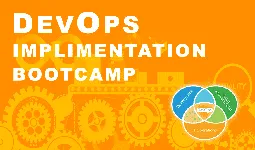

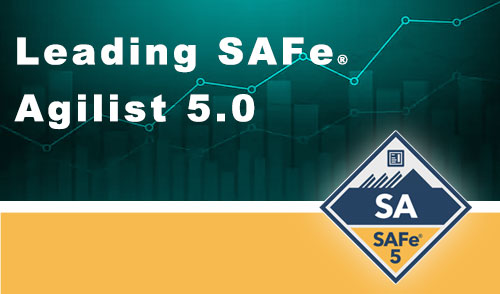
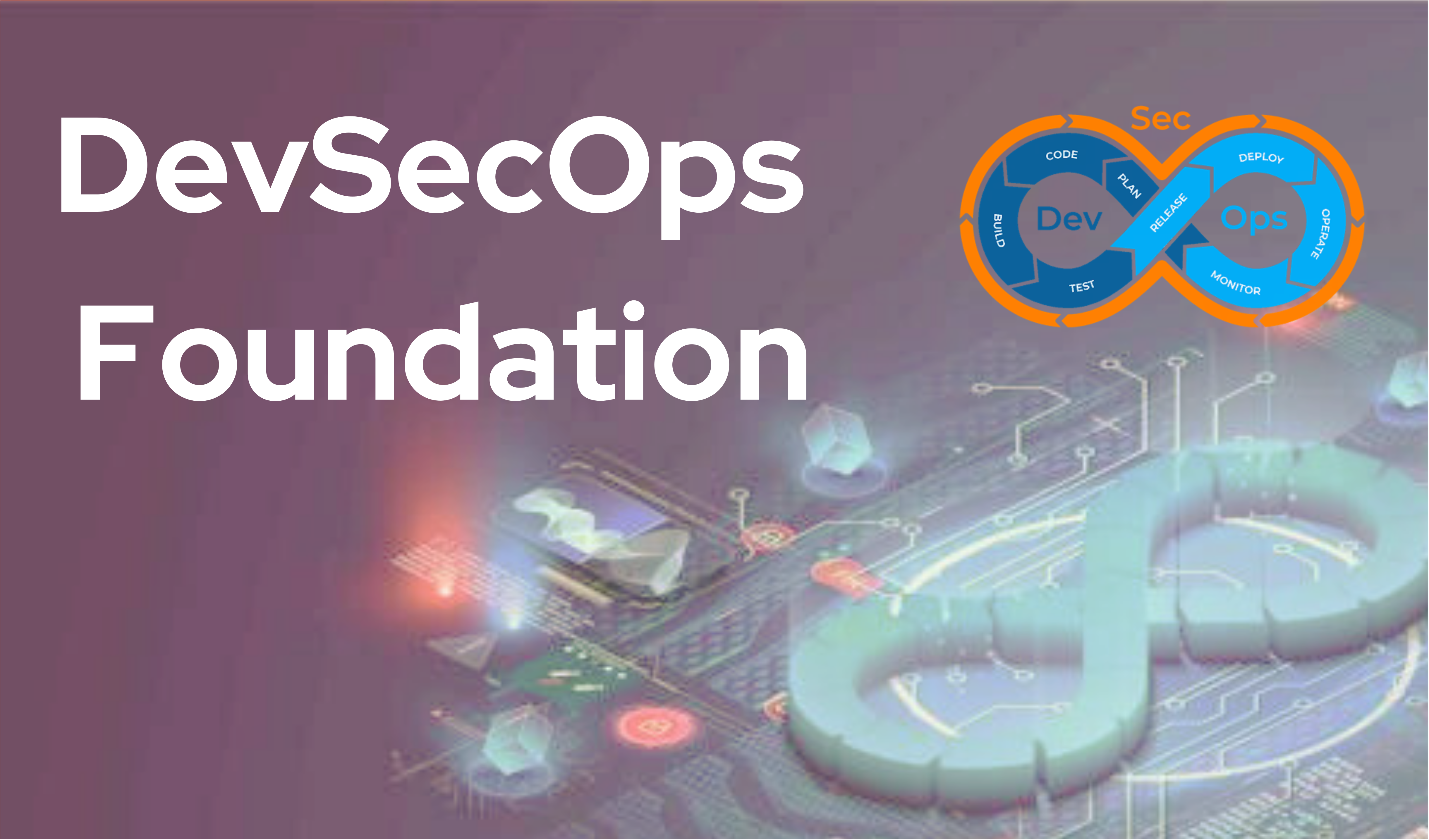
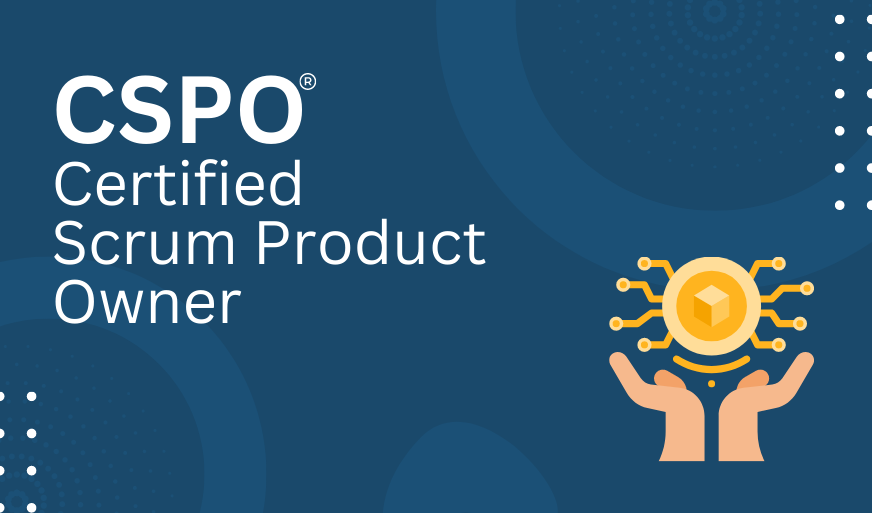
.webp)



